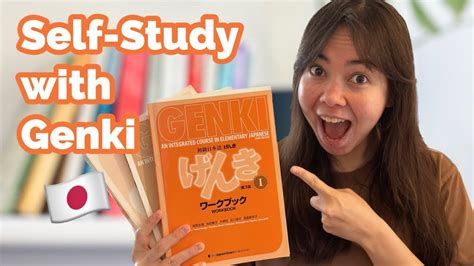Japanese Learning: How Long Does It Take with Genki?
Learning Japanese is a rewarding but challenging journey. Many aspiring learners choose the popular textbook series, Genki, as their starting point. But a common question arises: how long does it realistically take to complete the Genki series, and what level of Japanese proficiency will you achieve afterward? The answer, as with most language learning endeavors, isn't straightforward, but this comprehensive guide will help you understand the factors involved.
How Long is Each Genki Textbook?
The Genki series consists of two main textbooks: Genki I and Genki II. Each book covers a significant amount of material, building upon the previous one. The time it takes to complete each book depends heavily on individual learning styles, study habits, and the intensity of your study schedule.
-
Genki I: This textbook typically focuses on fundamental grammar, vocabulary, and basic conversational skills. Students usually spend between 3-6 months completing Genki I, depending on their dedication and learning pace. Some faster learners might finish it in less time, while others might require longer.
-
Genki II: Building upon the foundation laid in Genki I, Genki II introduces more complex grammar structures, vocabulary related to more sophisticated topics, and a broader range of conversational skills. Completion time typically ranges from 4-8 months, again depending on individual learning styles and study intensity.
What Factors Influence Completion Time?
Several factors influence how long it takes to finish the Genki textbooks:
-
Study Time per Week: The more time you dedicate to studying each week, the faster you'll progress. Consistency is key. Even short, focused study sessions (30 minutes to an hour) are more effective than infrequent, long sessions.
-
Learning Style: Some learners thrive in structured environments, while others prefer a more flexible approach. Finding a study method that suits your learning style is crucial for efficient learning and retention.
-
Study Resources: Utilizing supplementary materials like workbooks, online resources, language exchange partners, and immersion experiences can significantly accelerate your progress.
-
Native Speaker Interaction: Interacting with native Japanese speakers, even briefly, provides invaluable practice and feedback. This helps you internalize the language faster and identify areas needing improvement.
-
Prior Language Learning Experience: If you have prior experience learning other languages, you might find the learning process smoother and quicker. This applies especially to languages with different grammatical structures.
-
Personal Goals and Motivation: Having clear goals and remaining motivated throughout your learning journey greatly affects your progress.
What Level of Japanese Do You Achieve After Genki?
Completing both Genki I and Genki II will equip you with a solid foundation in Japanese. You should be able to:
- Understand basic Japanese conversations: You'll be able to comprehend simple conversations on everyday topics.
- Engage in basic conversations: You'll be able to hold simple conversations yourself on familiar topics.
- Read basic Japanese texts: You'll be able to read simple texts, such as short stories and news articles on straightforward topics.
- Write basic Japanese sentences: You'll be able to write simple sentences and short paragraphs.
However, it's important to note that completing Genki doesn't necessarily mean fluency. It provides a strong foundation, placing you around the intermediate-low level (roughly N4 on the JLPT scale). Further study and practice will be necessary to reach higher levels of proficiency.
What Happens After Genki?
After completing Genki, you should consider continuing your studies using more advanced textbooks or immersion methods. Consider exploring options like:
- Intermediate-level Japanese textbooks: Many textbooks build upon the Genki foundation, offering a smoother transition to more advanced materials.
- Japanese language immersion programs: Immersion programs provide an accelerated learning experience through constant exposure to the language.
- JLPT preparation materials: Preparing for the Japanese Language Proficiency Test (JLPT) is a structured way to continue your studies and measure your progress.
Frequently Asked Questions (FAQ)
How many hours a week should I study Genki?
There's no magic number, but aim for at least 5-10 hours per week to make steady progress. Consistency is more crucial than the sheer number of hours.
Is Genki enough to learn Japanese?
Genki provides a strong foundation but isn't sufficient for fluency. Consider it a stepping stone to further learning.
Can I learn Japanese faster than the estimated time?
Yes, with dedicated study, optimal learning strategies, and consistent effort, you might progress faster than the estimated times provided.
What resources should I use alongside Genki?
Supplementary resources like Anki flashcards, Japanese language exchange partners, and immersion activities will significantly enhance your learning experience.
In conclusion, while the Genki series offers a structured and effective path to learning Japanese, the completion time depends on individual factors. Embrace consistent study, explore various resources, and enjoy the journey of mastering this beautiful language. Remember that persistence and dedication are your best allies in this rewarding endeavor.

